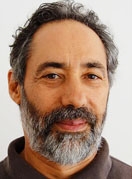Blum, M.: Difference between revisions
No edit summary |
No edit summary |
||
| Line 8: | Line 8: | ||
|namefirst=Mark | |namefirst=Mark | ||
|namelast=Blum | |namelast=Blum | ||
|bio=Mark Blum, Professor and Shinjo Ito Distinguished Chair in Japanese Studies at the University of California, Berkeley, received his M.A. in Japanese Literature from UCLA and his Ph.D. in Buddhist Studies in 1990 from the University of California, Berkeley. He specializes in Pure Land Buddhism throughout East Asia, with a focus on the Japanese medieval period. He also works in the area of Japanese Buddhist reponses to modernism, Buddhist conceptions of death in China and Japan, historical consciousness in Buddhist thought, and the impact of the Nirvana Sutra (Mahāparinirvāṇa-sūtra) in East Asian Buddhism. He is the author of The Origins and Development of Pure Land Buddhism (2002), and co-editor of Rennyo and the Roots of Modern Japanese Buddhism (2005) and Cultivating Spirituality (2011), and his translation from Chinese of The Nirvana Sutra: Volume 1 (2013). He is currently working on completing Think Buddha, Say Buddha: | |bio=Mark Blum, Professor and Shinjo Ito Distinguished Chair in Japanese Studies at the University of California, Berkeley, received his M.A. in Japanese Literature from UCLA and his Ph.D. in Buddhist Studies in 1990 from the University of California, Berkeley. He specializes in Pure Land Buddhism throughout East Asia, with a focus on the Japanese medieval period. He also works in the area of Japanese Buddhist reponses to modernism, Buddhist conceptions of death in China and Japan, historical consciousness in Buddhist thought, and the impact of the Nirvana Sutra (Mahāparinirvāṇa-sūtra) in East Asian Buddhism. He is the author of ''The Origins and Development of Pure Land Buddhism'' (2002), and co-editor of ''Rennyo and the Roots of Modern Japanese Buddhism'' (2005) and ''Cultivating Spirituality'' (2011), and his translation from Chinese of ''The Nirvana Sutra: Volume 1'' (2013). He is currently working on completing ''Think Buddha, Say Buddha: A History of Nenbutsu Thought, Practice, and Culture''. ([http://ealc.berkeley.edu/faculty/blum-mark Source Accessed May 31, 2019]) | ||
|affiliation=University of California at Berkeley | |affiliation=University of California at Berkeley | ||
|phduniversity=University of California at Berkeley | |phduniversity=University of California at Berkeley | ||
Latest revision as of 18:11, 20 July 2020
| PersonType | Category:Professors |
|---|---|
| FirstName / namefirst | Mark |
| LastName / namelast | Blum |
| bio | Mark Blum, Professor and Shinjo Ito Distinguished Chair in Japanese Studies at the University of California, Berkeley, received his M.A. in Japanese Literature from UCLA and his Ph.D. in Buddhist Studies in 1990 from the University of California, Berkeley. He specializes in Pure Land Buddhism throughout East Asia, with a focus on the Japanese medieval period. He also works in the area of Japanese Buddhist reponses to modernism, Buddhist conceptions of death in China and Japan, historical consciousness in Buddhist thought, and the impact of the Nirvana Sutra (Mahāparinirvāṇa-sūtra) in East Asian Buddhism. He is the author of The Origins and Development of Pure Land Buddhism (2002), and co-editor of Rennyo and the Roots of Modern Japanese Buddhism (2005) and Cultivating Spirituality (2011), and his translation from Chinese of The Nirvana Sutra: Volume 1 (2013). He is currently working on completing Think Buddha, Say Buddha: A History of Nenbutsu Thought, Practice, and Culture. (Source Accessed May 31, 2019) |
| affiliation | University of California at Berkeley |
| phduniversity | University of California at Berkeley |
| education | 1990 - Ph.D. in Buddhist Studies from the University of California, Berkeley |
| IsInGyatsa | No |
| Other wikis |
If the page does not yet exist on the remote wiki, you can paste the tag |

